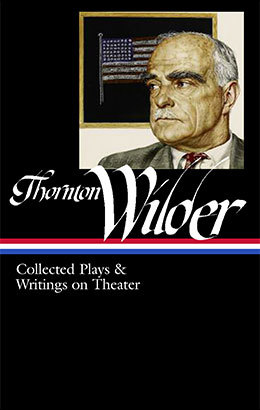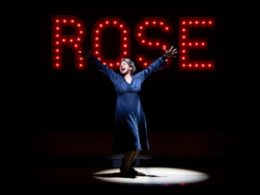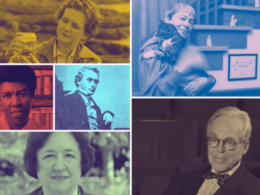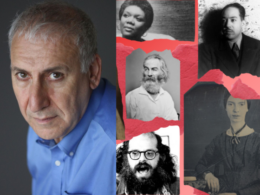In honor of Thornton Wilder’s 125th birthday, on April 17, 2022, Library of America is pleased to re-present the following remarks on his best-known play, Our Town, by the late J. D. McClatchy, who edited LOA’s three-volume edition of Wilder. McClatchy’s remarks originally appeared in a subscriber-only LOA newsletter from February, 2007.
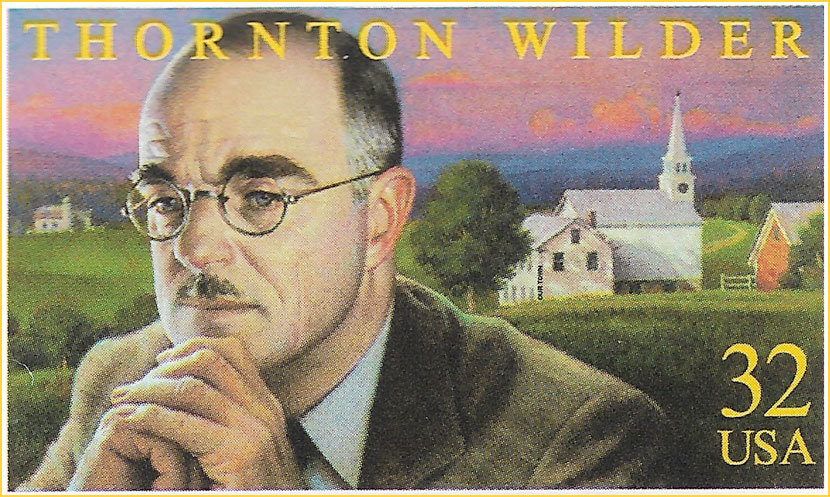
Our Town has been the most often produced American play, both in this country and abroad. Those who may not have seen or read the play since high school may think that’s because it is the sentimental portrait of a vanished world, a dramatized Norman Rockwell. But, in fact, what first gripped audiences in 1938 and has continued to hold them ever since are the play’s dark themes and its experimental methods. (The misunderstanding of Wilder’s darker purposes parallels that of Robert Frost’s.)
As a young playwright, Wilder was fascinated by new European trends in dramaturgy—German expressionism in particular—and it was his genius to use the most advanced manner of presenting material on stage and combine it with a subject entirely homespun and intimate. His other plays are bold in other ways—the way The Matchmaker, for example, explores the nature of farce, not a fashionable genre at the time—and a few are even more radical than Our Town. The point is, Wilder was a restless artist, fascinated by form, constantly searching for ways to turn the kaleidoscope of human emotions.
Wilder himself said that what interested him in Our Town were the small, overlooked moments of life, the spaces between events where so much goes unnoticed. In the 1960s, Wilder wrote one final note about the play, describing Emily in the last act:
She learns that each life—though it appears to be a repetition among millions—can be felt to be inestimably precious. Though the realization of it is present to us seldom, briefly, and incommunicably. At that moment there are no walls, no chairs, no table: all is inward. Our true life is in the imagination and in the memory.
Myself, I tend to think he was as interested in looking at humans from a long—there’s no need to call it God-like—perspective. Our Town is a play about nostalgia, about the ways we remember and misremember the past. Rarely in literary history has the anatomy of memory been so moving. And from the very beginning—as in his “Some Suggestions for the Director,” written for the first acting edition of the play—he was dry-eyed about his play, insisting that it be performed with a restraint necessary to make its hard-won emotions the more telling.
